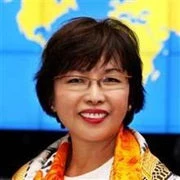A few weeks ago news broke about another horrendous attack in schools in Nigeria. More than 200 teenage girls were abducted from a school in the remote north-east of the country. In November last year more than 40 schools were burned and destroyed in an attack that also killed around 30 teachers. Those attacks belie strong national support for education and its strong link to the country’s economic growth and poverty reduction. This support was expressed compellingly by students, employers and national leaders at the Nigerian Economic Summit in Abuja in March. The message was that transforming education will determine Nigeria’s place in Africa and in the world.
As news articles and blogs focus on the plight of the girls abducted from their schools, we want to let you know that there are many good stories about Nigeria’s education as well. Indeed, there are exciting vocational and technical programs that are improving what and how young people learn so that they can be better prepared for their country’s modernizing economy.
Some weeks ago we visited three such programs in Lagos. In the Ikeja district, for example, secondary schools are collaborating with industry to better prepare students, including girls, for the changing world of work. Based on a partnership with Festo Didactic Limited, a German industrial automation company, the program introduces students to industrial machinery by exposing them to the fundamental components of such machines, in miniature, and training them on how to use those components to design machines that perform specific functions. The term for this is mechatronics.
In the same campus is a program built by Samsung to help students understand the solid-state circuitry of electronic gadgets and household appliances and train them to troubleshoot when these machines go wrong. During our recent visit, the students were fully concentrated on taking apart the latest Samsung television model that hadn’t yet arrived in shops. When they graduate, these students can expect to be employed immediately. Building on its success, another state in Nigeria is already rolling out a similar program.
And at the University of Lagos, we met a group of communications students using a refurbished media studio now equipped with professional-grade television cameras and sound center to produce news programs—and perhaps also an entry or two for Nollywood!
On a broader scale, Nigeria is one of eight African countries participating in a new initiative, the Africa Centers of Excellence, which will strengthen 19 universities in the continent (of which ten were selected competitively from Nigeria). For full disclosure, all these programs are supported by the World Bank to help Nigeria produce the skills demanded by a modernizing economy.
In recounting our inspiring visit to these programs, we remain aware that Nigeria, Africa’s most populous country, has many educational challenges. While its economy has grown and its national net enrollment rate has reached 61% at the primary level, 56% at the secondary level, and 12% at the tertiary level—almost twice as high as in the average Africa country (7%) and comparable to the average for South Asia (15%)—large pockets of the population remain out of school and illiterate.
Indeed, there are stark differences in the levels of education between the richest and the poorest households and between urban and rural households in Nigeria. And in the poor northern parts of the country, it is girls and young women who lag far, far behind, dropping out of school without learning to read or ever stepping foot in school. The terrible plight of more than 200 missing girls—who were in school and wanted to learn—is a reminder of the costs of widespread poverty, exclusion and ignorance.
Still, in this time of tragedy when the object of the abductors is to sow fear and despair, it is useful to keep in mind that there are bright spots in Nigeria’s education system that should be shared more widely. With education, it is possible for these young girls to escape poverty and to contribute to their country’s development.




Join the Conversation